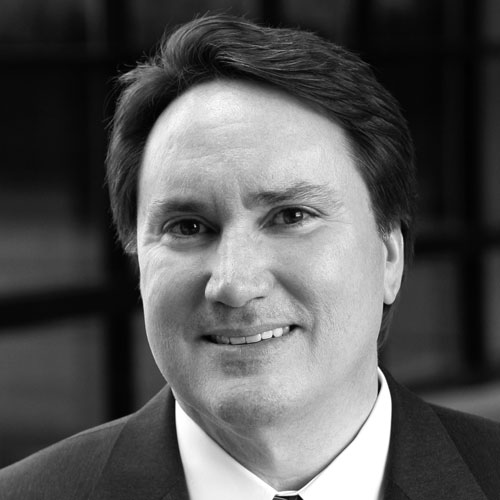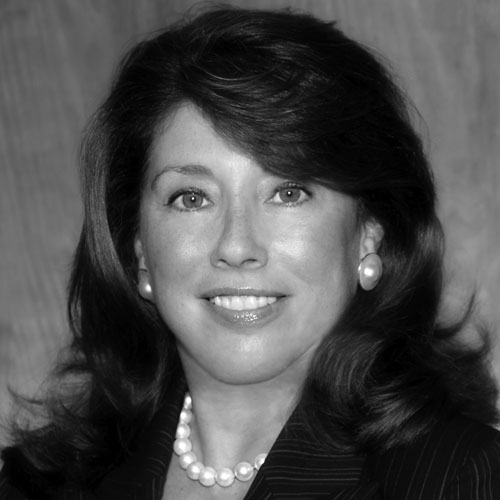When R. Cooper Shattuck became Robert Bentley’s legal adviser in 2011, he told the newly elected governor one thing: “I said I’d give him advice whether he asked for it or not, and that I didn’t care if he took it. He’s the one that was elected.” Shattuck, a part-time pastor and self-prescribed “recovering perfectionist” has mastered on-the-job training. Twenty years in private practice prepared him to advise the governor. Time in state government, in turn, prepared him to step in as chief legal officer for the University of Alabama System—a $5 billion network of three universities, a major hospital, and more than 30,000 employees. At the university, diverse experience is critical. Shattuck might deal with everything from fraternity pranks to Nick Saban’s contract—all in the same day.
What has helped you move from one sector to the next throughout your career?
R. Cooper Shattuck: Perspective. I love that word and concept. You have to appreciate the perspective that your client has, and that is different depending on where you are. In a firm, you shift gears from client to client based on the matter at hand, and they don’t always have the same goals and objectives. You have to be flexible and account for their perspective, and since the firm is a business, you have different goals sometimes. It’s about balancing that reality with the needs of the client.
And in government?
Shattuck: In government, the perspective is that of the people. The governor is the people’s chief executive, and you have to maintain a perspective of the governor as the governor, not as the person. We got along, and we got things done because we both had that perspective.
Was it difficult to maintain that separation?
Shattuck: Not really, because we set the tone and had an understanding right from the start. I explained my role and what I understood the legal adviser to be responsible for, and he agreed.
“I was in a large firm for my region, but it had a broad client base, so I got exposure to many things. I didn’t know about a lot, or a little about a little.”
What boundaries did you set?
Shattuck: I didn’t give him advice on political endeavors or campaign contributions, things like that. I was there to provide legal advice to the governor, not to him personally.
And there’s your current position with the university. What’s the perspective there?
Shattuck: It’s similar to working for the governor, in some ways, because it’s a state entity of sorts. The perspective in part is that of the taxpayer. I also represent the board. It’s not one individual, but a group of fifteen elected trustees (and two ex officio) that might have different ideas about their roles. I have to look at it as an institution represented by a board and not a person, which is harder.
That seems a bit abstract. How do you manage it?
Shattuck: The key to a successful board is a board that knows its role and one in which everyone on the board doesn’t try to do everything. We’re well organized into separate committees, and people delegate issues. Our legal affairs committee has four lawyers from the board, and I deal with them on legal matters. So right there I’ve reduced fifteen to four, and that committee has a chair, so it gets reduced to one.
How have your other roles prepared you for your current position? What legal training shapes your approach today?
Shattuck: I was lucky enough to have a legal practice that was broad. So many lawyers dealing in big litigation or significant transactions work in firms where they get pigeonholed into one specialization. The other extreme is those in a small firm that have to know only a little about everything. I was in a large firm for my region, but it had a broad client base, so I got exposure to many things. I didn’t know a little about a lot or a lot about a little. That equipped me to serve the governor because we dealt with unique and varied issues. I learned to think on my feet to address issues I’d never encountered before.
Does that apply at the university as well?
Shattuck: Again, there are unique issues in dealing with higher education, and it’s very regulated, so I had to learn a lot quickly. Thankfully, I have a great team of people that make that easy here. They get into the details but need someone to make a quick and informed decision, which I learned from watching the governor operate.
What challenges do you face?
Shattuck: I don’t think most people realize the regulations facing higher education and just how strict they are. We have to navigate the ins and outs of Title IX and funding, and then of course there are issues and concerns with rape and sexual assault.
You’ve been in some high-profile positions. Does that bring added pressure?
Shattuck: Well, everything we do is in the media. Online media is driven by clicks, and if the university is in the headlines, it generates clicks. I was used to that from the governor’s office, but from the legal perspective, we know that the days of anyone saying “no comment” are gone. We have to comment quickly in a clear way, and we have to do that in the bounds of what we can say legally and appropriately. The general public holds universities to a high standard, and as lawyers, we’ve had to broaden our perspective on it. We don’t just look at the legal liability of an issue—we have to consider reputational liability.
How do you like to lead your teams?
Shattuck: I think recognizing everyone’s strengths is very important. We all do [Tom Rath’s] Strengths Finder survey to recognize what we’re good at, and then I try to hit on those things. We have twenty-two lawyers here, and we are diverse in experience, age, and skills. That makes a strong overall team.
How have you constructed that team?
Shattuck: The chancellor here and the governor both stressed the importance of hiring good people and letting them do their jobs. Seeing that put into action has convinced me that I need to think about that every day. That means being open minded. We often have the kind of person in mind or pick a favorite résumé out of the pile, but if you’re not open minded during the interview, you’re going to miss the best people for the job. We’ve hired four people in the last year, and three of them were not the obvious first choice on paper, but all of them have worked out exceedingly well. Those that we thought were the top candidate might not have worked out. Now that we have the best team here, we can keep things moving forward and tackle any issue that comes up.
Maynard Cooper’s 220 attorneys dedicate
themselves to providing the highest-quality legal service for their clients. This dedication is the first of our firm’s founding principles. It emanates from offices in Alabama and California and is delivered to clients both large and small nationwide and throughout the world.

